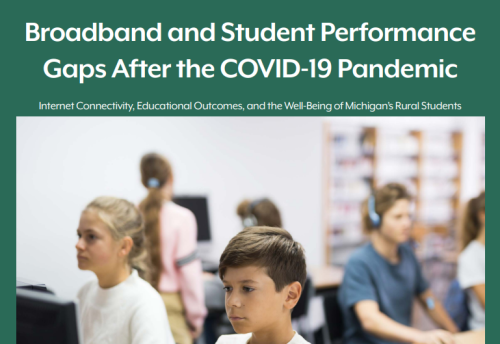The only programs I watch on TV with any regularity are cooking competitions like Chopped and American Football, so I find it somewhat odd that I have seen the same Toys “R” Us commercial advertising the toy retailer’s price-matching guarantee as many times as I have. Perhaps I have been watching too much Chopped Junior. In the commercial, a creepy children’s toy informs Optimus Prime that if potential consumers find him for a lower price at a competing retailer, Toys “R” Us will match the lower listed price (see it here). Optimus Prime is impressed not by the seemingly great deal, but by the existential realization that as a toy, he is not unique in our world.
When I first saw that commercial, my first though was, “I have a publication coming out about the practice of price-matching guarantees, AWWWESOME!!!” (this sentence is funnier after watching the commercial). My next though was, “it would benefit consumers more if retailers competed by lowering prices than pretended to compete by using price-matching guarantees.” I explain below.
As my co-author, Brady Vaughan, and I show in our paper, “Price-Match Announcements in a Consumer Search Duopoly,” forthcoming in the Southern Economic Journal, although advertisements emphasizing retailers’ price-matching guarantees appear to be pro-competitive, price-matching guarantees actually tend to lessen firms’ incentives to lower price. The intuition behind our main result is as follows. Suppose that consumers vary in their propensity to shop around for price. We might for instance think of individuals as valuing their scarce time differently, leading some to feel that their incremental cost of uncovering an additional sample price (i.e., by visiting an additional store), is higher than that of others. In such a setup, firms face two competing forces when setting their prices: they are inclined to lower prices to attract consumers who tend to shop around for the lowest price, and to raise them in an attempt to take advantage of consumers who find the activity of price comparison too time consuming to bother with (see Varian 1980, Stahl 1989 for the mathematical details behind this outcome). Price dispersion ensues: firms run sales of different magnitudes in an effort to maximize profits.
Now consider what happens when firms offer price-matching guarantees. Suppose that those consumers who find it worthwhile to shop around literally go store to store in search of price (this is not the only way to explain our results, but we find it to be one that aides intuition). Some of these consumers will end their search at a store that does not list the lowest price. Without a price-matching guarantee, if these consumers wish to procure the good at the lowest possible price observed, they will have to go back to the store with the best offer. But if the last store they visit offers a price-matching guarantee, they can get the lowest price there instead. Knowing this, firms realize that they won’t be able to win over as many price conscious consumers with deep discounts, so their incentive to run sales diminishes, leading to higher average prices.
Sound like a roundabout explanation? Brady and I are far from the first to suggest that price-matching guarantees can diminish competition and some of the earliest explanations seem downright obvious: price-matching guarantees keep firms from lowering prices because rival firms immediately match price-cuts (see Hay 1982, Salop 1986, Doyle 1988). However, I think that Brady and I have made a fairly cogent argument that takes into consideration how consumers behave and also accounts for the myriad advertisements firms undertake to inform consumers about their policies (here is one from Walmart, another from Toys “R” Us, and one from Staples).
This result begs the question, (i) have price-matching guarantees always been found to be anti-competitive and (ii) if so, can the anti-trust authorities reasonably do anything to prevent them? The answer to question (i) is a no. Although the bulk of the literature lends support to our findings, there are some notable explanations suggesting the contrary. One that I find somewhat convincing when firms are differentiated is that price-matching guarantees can be a signal that a firm generally has lower underlying costs (perhaps it has negotiated better deals with merchants or doesn’t spend as much on its service quality) and consequently sets lower prices (see Moorthy and Winter 2006, Moorthy and Zhang 2006 for the details). That is a theoretical argument. The empirical literature is somewhat mixed, but typically strays to answer the question, “do firms that price-match have higher prices than those that do not,” instead of “are prices in general lower or higher when price-matching guarantees are used by some firms in the market?” More empirical research is ne eded to settle the issue.
eded to settle the issue.
As for question (ii), the answer may be no as well. The anti-trust laws, stemming from the Sherman and Clayton Acts are generally focused on restraints of competition between firms, but price-matching guarantees are effectively standing offers by firms to contract with a consumer by referencing another firm’s price (see Edlin 1997). Contracts that reference rivals are assuredly of concern to anti-trust practitioners (Scott Morton 2013), but when the contract does not impose any restriction on any party except a commitment to lower price by the firm offering it in response to publicly available information, it would seem (without undertaking a very rigorous empirical examination of the case at hand) rather difficult to make a case that competition is being restrained.
All of this comes with a major caveat. Although I believe that price-matching guarantees have the potential to lead to higher prices in the market as a whole, if as a consumer, you find yourself in a situation where you can use a price-matching guarantee to save money, by all means do! Unless all consumers can coordinate with all other consumers to bring about a better situation for themselves, they should do what is in their individual best interest. I recently visited my family for the holidays and we decided to buy a board game to spend the time. My brother reminded me to put my research to work. I saved 20 bucks!



